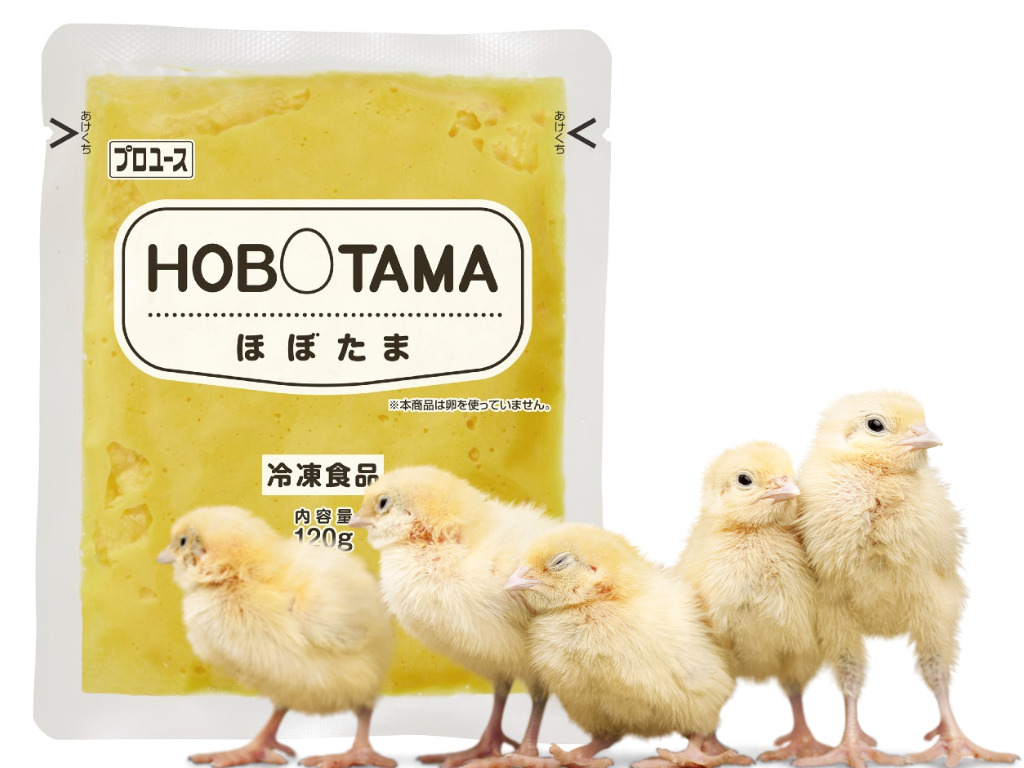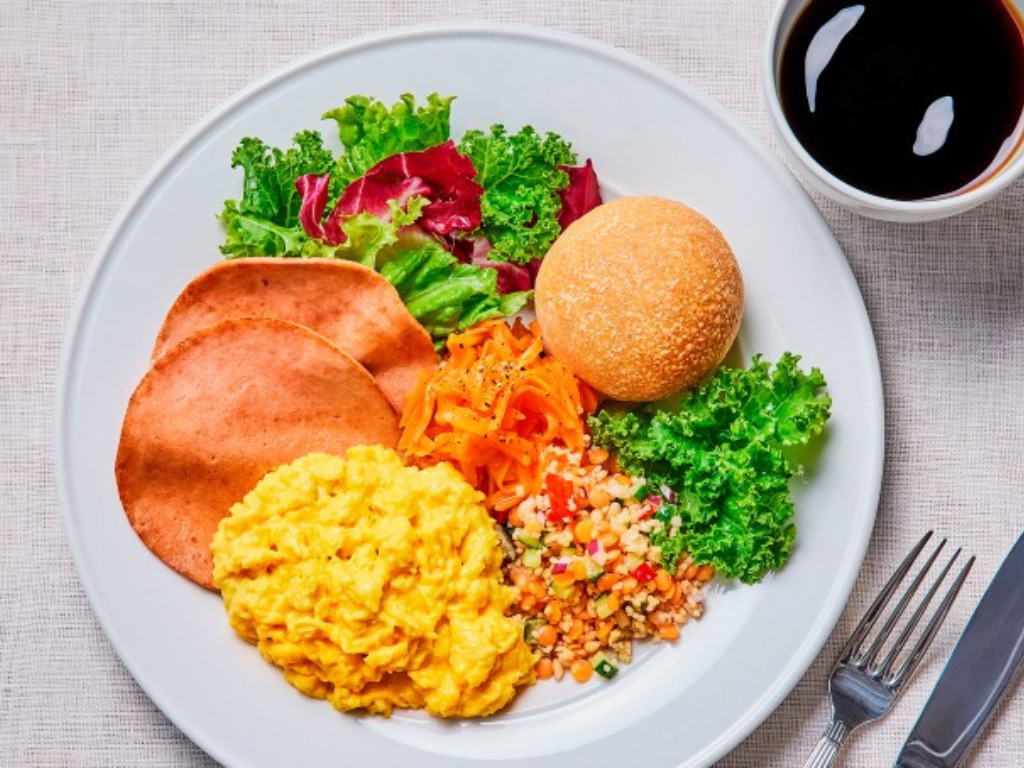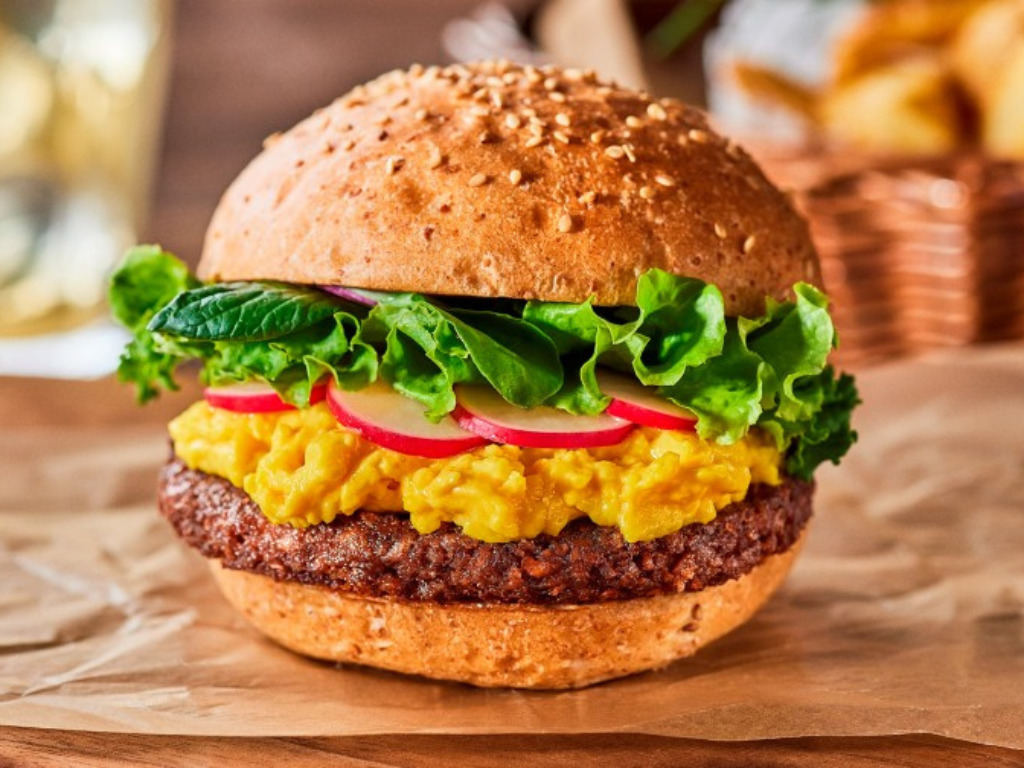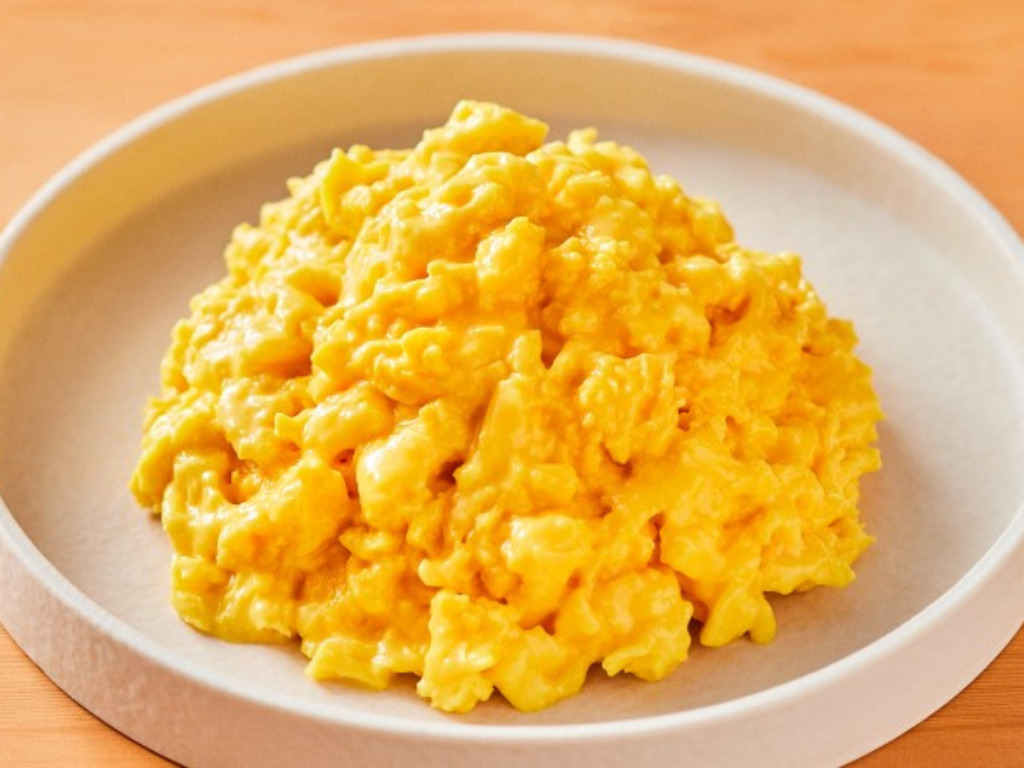3 Mins Read
Kewpie, known for its range of egg-based mayonnaise products which your local sushi joint slathers all over your California roll, has announced its new plant-based egg range. The Japanese manufacturer has unveiled Hobotama, which translates to ‘almost eggs’, a ready-to-serve scrambled egg analogue and liquid alternative for baking developed using soy milk.
Kewpie processes more conventional animal-laid eggs in Japan than any other company. Its mayonnaise, recognisable for bottles that feature a doll icon, is the best-selling brand in the country. Now, the company is seeking to extend its egg knowledge to vegan-friendly alternatives.

The market for egg alternatives
Japan is one of the world’s largest egg consumers. Annually, individuals are estimated to consume 320 per year. The majority are eaten raw, a practice rarely seen outside of the country, though certain traditional dishes call for cooked eggs, such as omurice and tamagoyaki.
Japan has a large poultry industry, with birds estimated to almost match the human population. Upwards of 2.5 billion eggs are produced annually, resulting in a healthy export industry, however, consumers are increasingly looking for alternatives due to concerns about health and animal welfare.
Eggs are linked to cholesterol levels and increased risk of heart disease as they contain LDL cholesterol and saturated fat.
Egg and poultry production units often see birds kept in cramped and unsanitary conditions, being forced to lay constantly during their short life spans. The greenhouse gas emissions of the industry are significant as well, with egg production being estimated, in 2018, to create 2.7 kilograms per dozen eggs.

Hobotama as an alternative to animal eggs
Kewpie’s Hobotama is soy milk-based, pre-scrambled and ready to heat. It is provided as a direct-to-consumer frozen product with a mild taste that makes it suitable for substitution into favourite dishes such as burgers, rice dishes, and breakfast plates. Packets contain the equivalent of one egg.
The development of Hobotama began in response to food allergies and a rise in plant-based eating within Japan. Kewpie claims that as a leading egg company, it has an inside track on how to make realistic vegan alternatives. Soymilk and defatted almond powder have been combined to create the right texture and consistency.
“The base of the ‘scrambled eggs style’ is a processed soymilk product, and we have devised an appearance that looks like a well-balanced mixture of white and yolk,” a spokesperson for Kewpie told Oricon News. “We are particular about the color and luster. You can thaw it and enjoy it as it is, or as a salad or sandwich. “

Japan’s cruelty-free egg options
Kewpie is not the first company to see the potential for plant-based egg products in Japan. Last month, 2foods by TWO Inc. unveiled a collaboration with Kagome that resulted in Ever Egg. The product has been specifically developed for use in plant-based omurice.
Last year, Japanese food tech Next Meats launched an egg analogue, called Next Egg 1.0. The company specifically cited usurping conventional egg production as a driving motivation for the development.
All product images by Kewpie.





